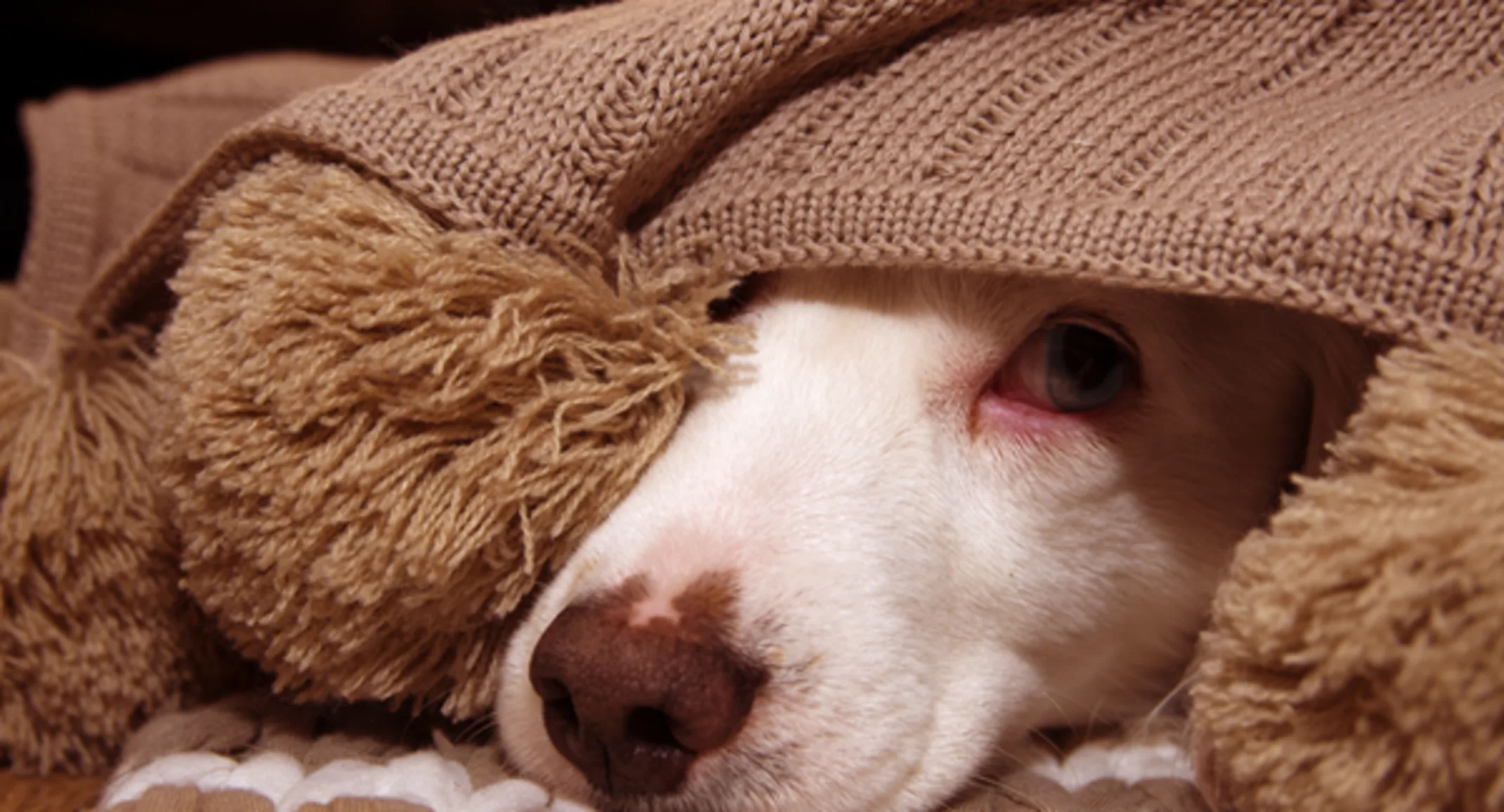Getting Ahead of Noise Phobias in Dogs: Managing Fireworks Fears and Storm Anxiety
General

Fireworks, thunderstorms, and other loud noises can cause panic and extreme fear in many dogs. In pets, an anxious response to loud or unexpected sounds is called noise phobia, and the condition can worsen over time if left unaddressed.
During fireworks season, you may notice your dog becoming restless, clingy, or destructive. Intense or prolonged reactions to noise aren’t normal, but you can take steps to alleviate your pet’s anxiety. Here’s how to manage noise phobias using behavioral techniques, environmental changes, and support from the RBVH Hillsborough team.
Recognizing noise phobias in dogs
Dogs experience and express fear in various ways. Some tremble or hide, while others may vocalize or act out. Signs of anxiety to watch for include:
Pacing, trembling, or difficulty settling in one spot
Whining, barking, or excessively vocalizing
Heavy panting or drooling
Hiding in closets, under beds, or behind furniture
Engaging in destructive behavior
Attempting to escape a crate or room
Refusing to eat or take treats
Urinating or defecating in the house
If you notice these signs in response to noise, your dog needs help to overcome their fears. Without intervention, most dogs with sound sensitivities get worse each time they hear the offending noise, and they may be susceptible to other types of anxiety, too.
Creating a safe space for anxious dogs
A quiet, welcoming space outfitted with your dog’s favorite things gives them a place to go when they feel scared. Your dog’s safe space could be an interior bedroom, closet, bathroom, or covered crate tucked away from windows and doors.
Add soft bedding, familiar toys, food treats, long-lasting puzzles, and soft lighting to make it cozy. A white noise machine, fan, or music speaker playing spa or classical music helps block out noise. Pheromone products (e.g., Adaptil) may also help to soothe your dog’s fears.
Behavior modification for noise phobias
Behavior modification can help some dogs overcome noise phobias through desensitization and counter-conditioning. Playing recorded sounds at a low volume while giving your dog food or other positive rewards, and increasing the volume over time, can help your dog form positive associations with previously scary noises. Working with a certified dog trainer or veterinary behaviorist can improve results.
Treatment and support for noise-phobic dogs
Some dogs need more support than a calming environment and desensitization. Work with our veterinary team to discuss medical treatment options, including anti-anxiety medications, sedatives, or calming supplements that can prevent anxiety from escalating. Anxiety wraps (e.g., Thundershirt) or weighted blankets are also helpful for many pets.
Some pet owners hesitate to accept sedation or anxiety medications because they prefer natural solutions or feel “drugging” their pet is a selfish act. However, pets displaying noise phobia signs are emotionally distressed and need help. Severe fireworks fears and storm anxiety are comparable to panic disorders in people, which frequently require medical intervention.
Getting help for noise phobias
If your dog’s fear response affects their quality of life, don’t wait until the next storm or Fourth of July celebration to act. Behavioral therapy takes months or years of hard work, and medication needs time to take effect. Contact our RBVH Hillsborough team for help with your sound-sensitive pup.
